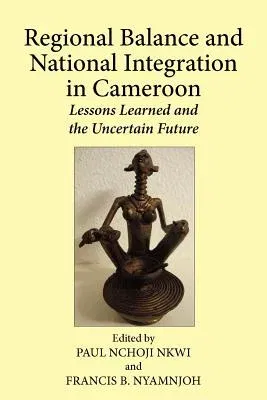This book presents a series of reflections by Cameroon scholars on a
variety of topics associated with regional balance and national
integration. The different reflections look for answers to some burning
questions of the day such as: Where are we coming from? Where are we
going? How are we going where we are going? Have the different state
ideologies offered appropriate solutions to the quest for a strong,
united, stable and prosperous nation-state? If not, what has gone wrong
and why? What can be done to shape the future and accommodate the
aspirations of the men and women of Cameroon and of their progeny? The
book addresses the issue of national unity and national integration
within the context of different political perceptions and visions. It
examines the merits and demerits of the policy of regional balance of
the Ahmadou Ahidjo years (1960-1982). Focus is also on the underlying
flaws of this doctrine and philosophy. The debate also addresses some
critical questions of the national integration policy and practices of
Paul Biya, President since November 1982. The policy has failed to
achieve its stated goals and has ended up in the ethnicisation and
polarisation of national life. The future of the Cameroon nation-state,
with its rich ethnic and cultural diversity, seems to be in jeopardy as
internal forces question the management of civil society by leaders who
have lost the sense of justice and equity. Why are there several voices
singing the song of destitution and disappointment with the state? Have
regionalism and the rhetoric of national integration and balance emerged
as untenable polities within a nation-state in search of an identity and
responsible leadership? These are some of the questions and issues
Cameroonian and Cameroonist scholars have tried to address in this
collection of 28 well-researched and outstandingly argued essays.


